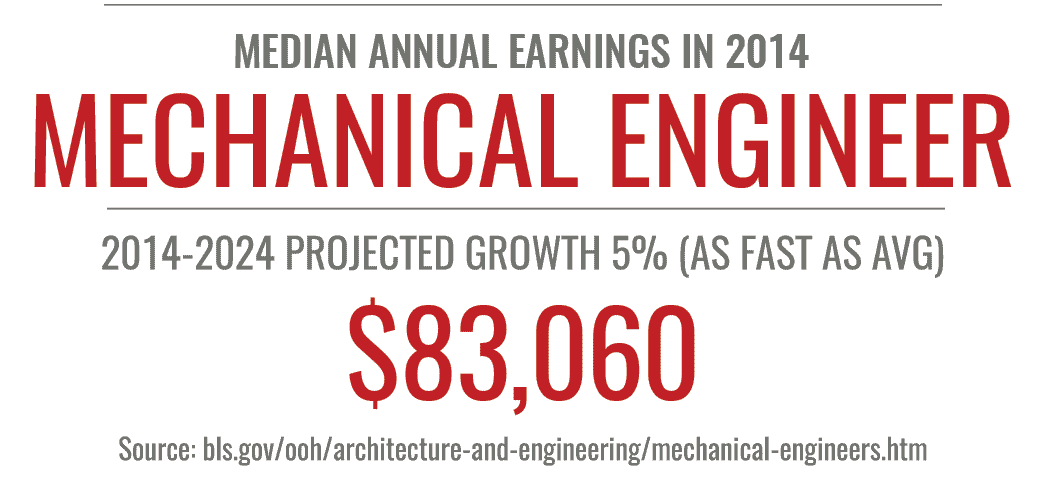Sponsored Online Programs Available

Online Bachelors Degree in Engineering
Do you find yourself taking things apart to try to see how they work and then putting them back together again? If the answer is “yes,” then you may want to consider pursuing an online bachelors degree in engineering. Within the field of engineering, there are many avenues for study and potential careers you could pursue.
By choosing one of the online degrees, you may be able pursue your passion and work towards your dream career. You also have options that don't apply in a campus setting, such as self-paced learning—which gives you an added layer of flexibility to your classes.
What Concentrations May Be Available for a Bachelors Degree in Engineering?
Within the field of engineering, there may be numerous concentrations. Not all colleges may offer a comprehensive catalog of all the different degrees one could earn. Some common bachelors degree in engineering programs may include electrical, computer, and mechanical, and many of the other concentrations may be found within these major categories. Other examples of engineering degrees and/or concentrations may include[i]:
- Aerospace
- Automotive
- Biomedical
- Architectural
- Agricultural
- Civil
- Mining
- Nuclear
- Chemical
If you already know the area or focus you wish to study, then it may be beneficial to search for a college that offers a bachelors in engineering with that particular emphasis. If you are unsure of the field you wish to pursue, then it may possible to find programs that provide a general background in several categories before you have to choose your concentration.
If you already know you want to earn a masters degree after this, you need to know about Accelerated Programs, where you earn a package degree in a (much) shorter period of time.
Common Coursework for an Online Bachelors Degree in Engineering
An Online Bachelors Degree in Engineering falls under the STEM (science, technology, engineering, and mathematics) category, so you can expect to take a lot of science and math courses, especially as a component of your general education and introductory courses. Mathematics and physics play a major role in several of your courses, so it could important that you have a solid background in these subjects, including calculus and trigonometry[ii].
However, you may be able to find programs with no foreign language requirement, for those who focused on their STEM studies in high school.
You may likely have several courses that are designed to teach you about engineering, including industry-standard practices. Coursework may also be in thermodynamics, machine design, circuits, electronics, robotics, and more[iii]. Many engineering programs might also include some basic courses in business and communication[iv].
What Skills Are Beneficial for Engineering Students?
For Mechanical Engineers, the following skills may be beneficial:[v]
- Critical Thinking — Using logic and reasoning to identify the strengths and weaknesses of alternative solutions, conclusions or approaches to problems.
- Mathematics — Using mathematics to solve problems.
- Reading Comprehension — Understanding written sentences and paragraphs in work related documents.
- Science — Using scientific rules and methods to solve problems.
What Career Paths May People Who Earn a Degree in Engineering Pursue?
There are numerous potential professions that a person with a bachelor's in engineering may pursue. A student’s degree concentration may play a significant role in the type of engineering position he or she pursues. For example, some graduates with a civil engineer degree choose to pursue work for city governments to help with city planning or work for construction companies, especially those that build skyscrapers, bridges, roads, or oil rigs . Mechanical engineers may pursue careers on repairing or creating various mechanical devices, such as radios . Electrical engineers may choose to pursue career paths in building consumer electronics, generating or disturbing energy, or developing electrical instruments[viii] . According to the Bureau of Labor Statics, the median annual pay for civil engineers in 2014 was $82,050 , while the median salary for electrical engineers was slightly higher at $93,260[x] and mechanical engineers earned $83,060[xi].
Engineering is a fascinating field, employing people who help build the machines, roads and structures that are so important to our lives. If you want to pursue a career in engineering, then enrolling in an online bachelor’s degree in engineering may be the perfect option for you.
[i] typesofengineeringdegrees.org/ | [ii] grantham.edu/online-degrees/electronics-computer-technology/ | [iii] devry.edu/degree-programs/engineering-information-sciences/electronics-engineering-technology.html [iv] grantham.edu/online-degrees/electronics-computer-technology/ | [v] onetonline.org/link/summary/17-2141.00 | [vi].onetonline.org/link/summary/17-2051.00 | [vii] onetonline.org/link/summary/17-2141.00 | [viii ] onetonline.org/link/summary/17-2071.00 | [ix] bls.gov/ooh/architecture-and-engineering/civil-engineers.htm | [x] bls.gov/ooh/architecture-and-engineering/electrical-and-electronics-engineers.htm | [xi] bls.gov/ooh/architecture-and-engineering/mechanical-engineers.htm

